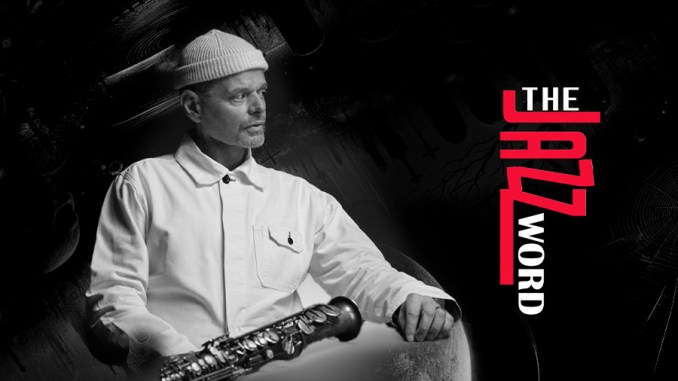
Chip Wickham, The Eternal Now Review
Dwelling in the Present: Chip Wickham’s The Eternal Now
By Sylvannia Garutch
 Chip Wickham’s The Eternal Now arrives like a prism catching spiritual jazz sunlight, refracting the many shades of this journey into a unified beam. Released on Gondwana Records, the album is Wickham’s most progressive statement to date and his most rhythmically grounded. Having long woven his sound through the UK’s spiritual jazz renaissance alongside Matthew Halsall, The Cinematic Orchestra, and the Gondwana family, Wickham now presents a work that turns inward to the discipline of art itself: the surrender to process, and the liberation found within it.
Chip Wickham’s The Eternal Now arrives like a prism catching spiritual jazz sunlight, refracting the many shades of this journey into a unified beam. Released on Gondwana Records, the album is Wickham’s most progressive statement to date and his most rhythmically grounded. Having long woven his sound through the UK’s spiritual jazz renaissance alongside Matthew Halsall, The Cinematic Orchestra, and the Gondwana family, Wickham now presents a work that turns inward to the discipline of art itself: the surrender to process, and the liberation found within it.
The opening track, “Drifting,” sets the spiritual jazz atmosphere with a growing propulsion. Luke Flowers’ drumming is supple as he insistently builds the, providing a foundation over which Wickham’s alto flute floats in translucent arcs. George Cooper’s Fender Rhodes supports with harmonies that create astral soundscapes. Simon “Sneaky” Houghton’s bass keeps the groove agile and firm. It’s a reminder that Wickham’s lyricism thrives when rhythm and harmony fuse into a single tide.
“Nara Black” continues the dialogue as Wickham switches to flute, his tone warm and lyrical. The funky world groove sweeps your imagination as the song builds over time with PEACH.’s vocals adding a tactile edge, giving the music a layered propulsion. The ensemble interaction is expressive. Eoin Grace’s trumpet enters with a warm glow, broadening the harmonic canvas. The interaction in the orchestrating of the small ensemble textures is interlocking in an embroidery of sounds.
The title track, “The Eternal Now”, continues the philosophical core. Wickham leads a hypnotic call-and-response with Rhodes and percussion. The melodic material is rich, and its modal framework allows Wickham to accent his phrases with the intention of expression. The performance builds music that meditates on the present tense, much like the Zen notion of ikigai that later surfaces in miniature. The improvisations breathe, each phrase shaped as the ensemble creates an air of emotion.
“Lost Souls” has Mohamed Oweda’s violin and Christophe Leroux’s cello lending the music a chamber-like depth, intertwining with Lia Wickham’s and PEACH.’s vocals. The strings accompany and act as melodic colors, shifting the piece into the territory of European jazz modernism. One hears the pastels of a lyrical, orchestrated groove.
“No Turning Back” is a three-minute performance that demonstrates Wickham’s ability to compress narrative elegance and a strong sense of time feel. Flowers and Sneaky lock into a groove that pulses with clarity, while Wickham’s solo is a conversation with the rhythm. The piece brims with forward motion without being chaotic.
“The Road Less Travelled” reflects the album’s emotional texture and cinematic appeal. At over five minutes, it unfolds with Wickham’s performance glowing with warmth. The rhythm section allows for a strong sense of time. The groove has space where motifs can expand and contract. The dialogue between harmony and melody evokes the quality of spiritual jazz through a contemporary prism.
The Eternal Now is a compelling reflection of Wickham’s ability to synthesize music that enlivens the spirit. He draws upon the rhythmic vitality of spiritual jazz, the orchestral color of European chamber traditions, and the groove consciousness of modern crossover styles. The album has a soulful voice that is built around Wickham’s flute, saxophone, and his well-structured compositions. The European jazz experience offers a rich balance in ensemble layering, modal improvisation, and rhythmic construction. For listeners, it is an invitation to find beauty in inhabiting the music unfolding.

Be the first to comment